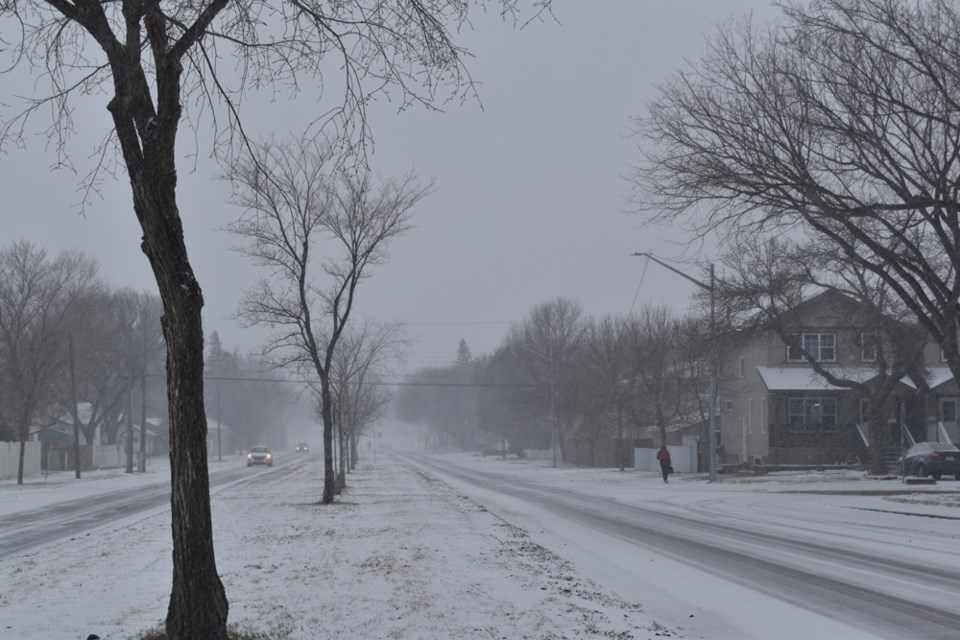SASKATOON — City Emergency Planning director Pamela Goulden-McLeod said that they have various ways to make sure they address the complex issue of housing the homeless and most vulnerable members of the community, most especially in a snowstorm or heavy snowfall event.
“We do have an emergency operation centre activation right now with the Saskatoon Fire Department as the incident command for that and it's meeting regularly, and looking at processes to address people, particularly encampments,” Goulden-McLeod said at a Tuesday media briefing.
“It's a very collaborative and very respectful process, where when there is a location shared with the city the fire department is assessing the level of risk and engaging with outreach workers and trying to support individuals and finding emergency shelter and accessing long term shelter.”
She added that the cold weather strategy has been activated in partnership with the Saskatoon Housing Initiative Partnership.
“This partnership is multiple agencies and organizations working together to ensure that everyone has access to a safe emergency shelter during extreme weather events. So, the triggers have been met for that activation and the partnership will be working to identify people in need of emergency shelter and supporting them in accessing that shelter as quickly as possible.”
SFD Assistant Chief Yvonne Raymer, in a separate briefing, said they had also already implemented a proactive approach in dealing with the safety of the homeless and other people living on the streets as temperatures begin to dip, and during cases of snowstorm and extreme weather conditions.
She said that the Emergency Operations Centre help manager the life, safety, and health issues of those who experience homelessness and are living on the streets within the city. Their immediate goal is to provide shelter to anyone who is living outdoors.
Safety is priority
“Safety is the top priority of this initiative. We have done this on a smaller scale a little bit one on one and a little bit with some other partnering agencies. But as the weather turns colder, we have decided to focus on a more dedicated proactive approach to support so we will be working with partner agencies.”
Goulden-McLeod said they currently don’t have the exact numbers of how many can be sheltered and how many had already been in designated housings.
"I know through all the multiple processes in place that there is access to both shelter and hotel locations. It’s all those organizations working to ensure that anybody who needs a safe place to stay can get to it.
“In addition, we have the cold weather strategy that is another process to ensure nobody is stuck out in this extreme cold weather. And then we're as always supporting the work that [Saskatoon Tribal Council] Chief Mark Arcand and the Tribal Council in what they're doing and that’s looking at long term solutions.”
Goulden-McLeod and City Roadways, Fleet, and Support director Goran Saric also reminded residents to be safe while on the road or just stay indoors as the weather worsens. They said to only go out if it is necessary.
"We would certainly work with the Saskatoon Police Service and the SFD as well in trying to help as much as we can… Part of my job involves overseeing our winter maintenance and snow operations on the roads,” said Saric when asked on how to help motorists and commuters who will get stranded when the storm worsens.
“We are expecting significant snow events to occur in the city throughout [Tuesday] and into [Wednesday], and the snow event is expected to be blizzard like conditions with 10 to 15 centimetrer of snow fall and the wind gusting to 80 kilometers an hour. So, while the snow event is not expected to be like the November 2020 blizzard, it is expected to result in blizzard like conditions over the next 24 hours or so.”
Goulden-McLeod added that everyone should think twice whether they need to be travelling in the height of the storm.
“If [travel is] necessary, to be prepared. Our crews need to focus on ensuring that the roads are cleared, and our police will always respond to an emergency.”
“But everyone is responsible for preparing for this emergency and that really means residents being thoughtful about whether they do need to be out and about or something can be delayed a couple hours before they head out.”
She said that everyone should monitor weather the changing weather conditions and be prepared in case of an emergency.
“If you need to travel, ensure you're checking the road conditions particularly if you need to travel outside of Saskatoon.”
“Be prepared if you really have to travel have your emergency kits are charged cell phone. You make sure somebody knows where you're going and when you should be there. As always, check on your neighbours, family members, and friends.”
She added it is also nice to look out for each other in our neighbourhood.
“Clearing the sidewalks is really important, and you might have neighbours or family friends who need help with that. The most important resource in our emergency kit is always our relationships in the community. So, let's as always continue to look out for each other and help each other out.”




